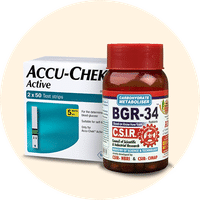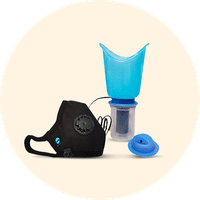Rs.488for 1 bottle(s) (10 ml Eye Drop each)
food interaction for ECOmoist Ultra
alcohol interaction for ECOmoist Ultra
pregnancy interaction for ECOmoist Ultra
lactation interaction for ECOmoist Ultra
food
alcohol
pregnancy
lactation
No interaction found/established
No interaction found/established
The safety of ECOmoist Ultra Eye Drop during pregnancy has not been established. There are no adequate and well-controlled studies in pregnant women, and animal data on reproductive toxicity are insufficient. Your doctor will weigh the benefits and any potential risks before prescribing.
CONSULT YOUR DOCTOR
ECOmoist Ultra Eye Drop should be used with caution during breastfeeding. Breastfeeding should be held until the treatment of the mother is completed and the drug is eliminated from the body.
CAUTION
SALT INFORMATION FOR ECOmoist Ultra
Polyethylene Glycol(0.4% w/v)
Uses
Polyethylene Glycol is used in the treatment of constipation and intestine preparation before any surgery.
How it works
Polyethylene Glycol works by drawing water into the intestine through osmosis, which makes the stool soft and easier to pass.
Common side effects
Nausea, Diarrhea, Stomach pain
Propylene Glycol(0.3% w/v)
Uses
Propylene Glycol is used in the treatment of dry eyes.
How it works
Propylene Glycol forms a protective layer over mucous membranes to relieve inflammation and/or irritation. Propylene Glycol acts as humectant as It holds up to three times its own weight in water.
Common side effects
Application site reactions (burning, irritation, itching and redness), Blurred vision
SUBSTITUTES FOR ECOmoist Ultra
114 Substitutes
114 Substitutes
Sorted By
 Rs. 462.10save 10% more per ml of Eye Drop
Rs. 462.10save 10% more per ml of Eye Drop Rs. 481.88save 7% more per ml of Eye Drop
Rs. 481.88save 7% more per ml of Eye Drop Rs. 243.70save 54% more per ml of Eye Drop
Rs. 243.70save 54% more per ml of Eye Drop- Raymoist Eye Drop(10 ml Eye Drop in packet)Akums Drugs & Pharmaceuticals Ltd.Rs. 34.93/ml of Eye Drop
 Rs. 349.30save 28% more per ml of Eye Drop
Rs. 349.30save 28% more per ml of Eye Drop  Rs. 435.94save 15% more per ml of Eye Drop
Rs. 435.94save 15% more per ml of Eye Drop
Expert advice FOR ECOmoist Ultra
- Polyethylene Glycol is used for the treatment of constipation.
- It should preferably be taken at bedtime as it requires 2-3 days to show effect.
- It is usually taken once a day as needed for up to 2 weeks. Take it exactly as prescribed by the doctor.
- Some healthy tips to prevent constipation from happening:
- Eat more fiber in your diet. Recommended daily intake is 20-35g
- Drink 8-10 glasses of water per day
- Exercise regularly at least 3 times per week
- Do not hold in stool as that can worsen bowel issues
- Take it atleast 2 hours after taking other medicines, as it may interfere with the absorption of other medicines.
- Inform your doctor if you have a history of stomach disorders such as appendicitis or a blockage in your bowel.
- Polyethylene Glycol is used for the treatment of constipation.
- Some healthy tips to prevent constipation from happening:
- Eat more fiber in your diet. Recommended daily intake is 20-35g
- Drink 8-10 glasses of water per day
- Exercise regularly at least 3 times per week
- Do not hold in stool as that can worsen bowel issues
- Take it atleast 2 hours after taking other medicines, as it may interfere with the absorption of other medicines.
- It should preferably be taken at bedtime as it requires 6 to 8 hours to show effect.
- It is usually taken once a day as needed for up to 2 weeks. Take it exactly as prescribed by the doctor.
- Inform your doctor if you have a history of stomach disorders such as appendicitis or a blockage in your bowel.
Frequently asked questions FOR ECOmoist Ultra
Polyethylene Glycol
Q. What is Polyethylene Glycol used for?
Polyethylene Glycol is a medicine used to treat constipation and for intestine preparation before surgical procedures. It works by pulling more water into the intestines, which is called osmosis. When there is more water in the intestines, the stool becomes softer or even watery and is easier to pass.
Q. What are the side effects of Polyethylene Glycol?
The side effects of Polyethylene Glycol are stomach pain, nausea, and diarrhea. However, these are usually not bothersome, but if they do not resolve, please consult your doctor.
Q. How long does Polyethylene Glycol take to work?
Polyethylene Glycol usually takes 2 to 3 days to start working. It works by increasing the fluid in the small intestine, thus making stools softer and easier to pass. As a result, a bowel movement is stimulated by causing a watery diarrhea.

















